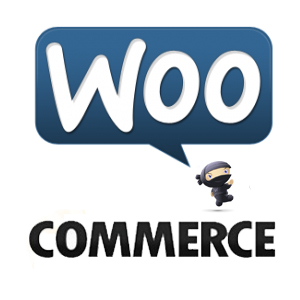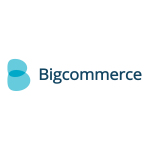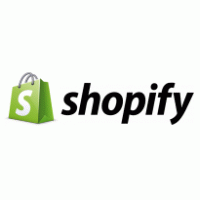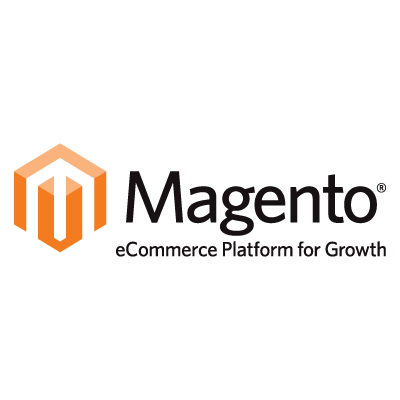After all, e-Commerce accounts for several hundred billions of dollars in revenue each year in North America alone. E-Commerce is a great way to expand your customer base and multiply sales, but one FAQ when taking on a new e-Commerce project has always been: How do we know which platform is right for our business?
Finding the right match will affect everything from user experience to reporting and, ultimately, your bottom line. An e-Commerce store is an investment, so choosing a scalable, flexible and secure platform from Day 1 is important. Make sure not to tread too lightly on the choice you make. Not to worry though, we’re here to help get you started! In order to introduce you to the landscape of e-Commerce platforms, we’ve written a brief breakdown of some of the top platforms available, from the simplest to the most complex. Let’s have a look:
 OpenCart
OpenCart
OpenCart is a PHP- and MySQL-based platform that’s basically ready to go right out of the box. Its design is simple and great for businesses that are just starting out in the e-Commerce world. While the open source platform lacks bells and whistles that larger platforms offer, OpenCart’s simplicity and intuitiveness can be invaluable for small business owners and managers. It easily integrates with several popular payment gateways, such as PayPal, 2Checkout, WorldPay, SagePay and more. The price tag is right for small businesses, as use is free and development costs are low. Note that you may need to budget for extensions and add-ons as you expand. OpenCart is also self-hosted rather than subscription-based, so security updates are up to you. In all, OpenCart is certainly more basic than some of your other options, and lacks customer and technical support.
It’s the right platform for you if: you’re launching a new e-Commerce startup with a limited number of products and a small budget, but you either have some technical expertise or have someone on-hand that does.
Stores run on OpenCart: British Red Cross, Cellside
 SHOPIFY
SHOPIFY
Shopify has come to be one of the most progressive, intuitive and aesthetically appealing e-Commerce platforms on the market; It’s also just hit over 150,000 users. The SaaS (Software as a Service) offers several levels of service and functionality that fit an array of business needs. Pricing ranges from a simple starter package of $14 per month to unlimited storage, products and bandwidth for $179 per month (or higher if you’re Enterprise-level). One pricing benefit is that credit card processing is included in Shopify’s flat monthly cost, making it easier to predict variable costs – it also means you don’t have the headache of setting up PayPal or Stripe. Despite the fact that many large businesses (like Gatorade and Tesla Motors) use its Enterprise version, the software is mainly suited for small-to-medium retail businesses. Another major value-add is Shopify’s in-store Point of Sale system that allows you to accept credit cards in person.
While there are tons of apps and add-ons available to help with day-to-day business needs, they can start to get very costly very quickly. Shopify stores already come hosted which is a big time-saver, and also pretty much guarantees security, however, it also means that the ability to custom-tailor your store is very limited.
It’s the right platform for you if: You’re running a simple small-to-medium sized store, you have little technical knowledge, or if you have a brick-and-mortar store that could benefit from syncing online & offline POS systems.
Stores that run on Shopify: Paragon Fitness, Natalie Waldman Jewelry, Pencil by 53
WOOCOMMERCE

It’s the right platform for you if: You’re looking to run an e-Commerce store on a small-to-medium budget and have a developer or technical team by your side.
Stores that run on WooCommerce: Copy Hackers, Bright Watches, Gourmet of the Day (Coming soon!)
 VOLUSION
VOLUSION
Volusion is another e-Commerce platform not to be forgotten. Although they may not have the same household-name status as Shopify, they have been around since 1999. The pricing plans are designed to be flexible enough to help your store expand from a basic e-mom-and-pop of under 100 products to an unlimited quantity of items and the ability to do more. Where Volusion excels is in the areas of marketing add-ons and support. The platform can, for example, help you run email campaigns, issue gift certificates or organize promotional events; The trouble, however, is that many of the crucial features are only available to higher price-tiers. For an added cost, it can become an e-Commerce one-stop-shop, but lower tiers may feel a little excluded. All around, between the simple UI, the multitude of added features, and the integration with all major social networks, this is one of the best options on the market.
It’s the right platform for you if: You’re a growth-oriented company, perhaps already established in the brick-and-mortar world and looking for new revenue streams online. Also consider Volusion if your marketing strategy is heavily social media-oriented.
Stores run on Volusion: All Dog Boots, The Native State Jewelry, Elaine Turner
BIGCOMMERCE

The downside with Bigcommerce is that they tend to have a very sneaky pricing plan, which basically means while the base fee seems reasonable at $29.95/month, add-ons and extra features can happen pretty quickly – and don’t forget Bigcommerce does skim a percentage off of all sales.
It’s the right platform for you if: You’re looking to invest in an overall e-Commerce solution with lots of add-ons and digital marketing capabilities, but are less concerned about budget restrictions. If you think mobile will be a major driver for sales, Bigcommerce is definitely a good option.
Stores that run on Bigcommerce: Torie & Howard, 3×1 Clothing, Dinosaur Designs
MAGENTO
Alas, Magento. The mammoth of the e-Commerce world, Magento is by far the most complex platform available. While the company offers a free “Community” version, costs to develop and customize a Magento store are much higher, not to mention the costly server and maintenance requirements. Magento has three levels of service, designed for different-sized businesses. Magento Go is the most ready to go, as the name would suggest, and is priced for small business. Magento Community is free (although you’ll still have to pay for hosting) and is designed for medium-sized businesses. Magento Enterprise is the giant, and it’s not for the faint of heart. Depending on functional requirements, its price tag can be $50,000 per year and upwards. That said, Magento Enterprise supports online stores for Samsung, Ford, Nike, and other global brands.
It’s the right platform for you if: If your online business needs are unique, or if your business handles high sales volumes, then Magento may be the right solution. However, don’t wade in alone – make sure you have an experienced tech team who has experience with Magento.
Stores that run on Magento: Christian Louboutin, Ghirardelli Chocolate, Fiji Water
Over the past two decades e-Commerce has revolutionized the world of business, and has enabled small companies to easily and rapidly expand customer bases. Not surprisingly, hundreds of competing platforms have appeared over the years, each vying to provide superior sales tools to the masses. Before investing in a platform for your online storefront, we recommend you consult with a web development specialist to ensure your store is both flexible and scalable for years to come.


